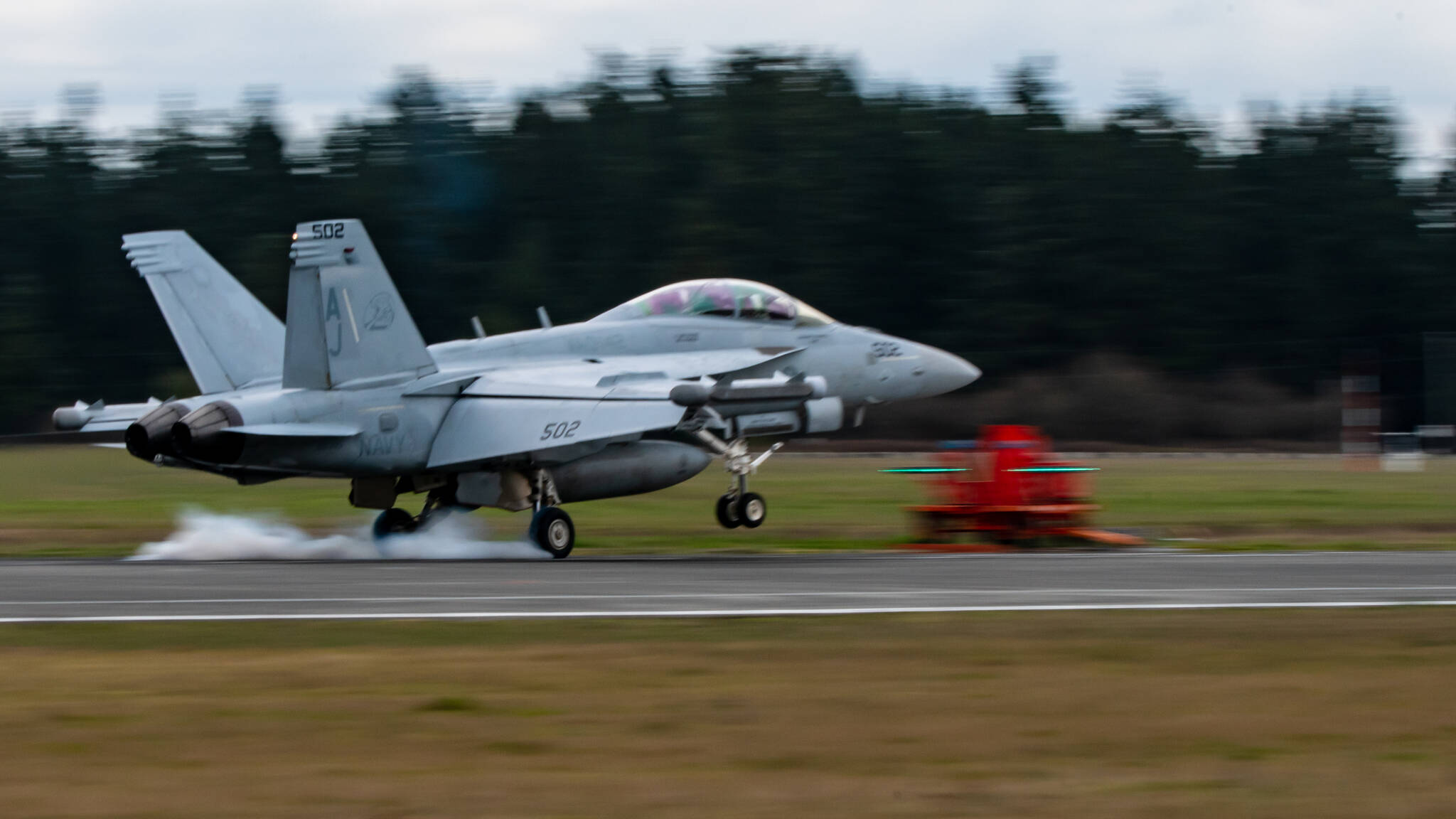A federal judge ruled this week that a Navy study on the environmental impacts of Whidbey Island-based EA-18G Growlers was flawed.
Both the state Attorney General’s Office and Citizens of Ebey’s Reserve, or COER, filed lawsuits in 2019 following the Navy’s completion of an Environmental Impact Statement and the subsequent issuance of a notice of decision to bring 36 additional Growler aircraft to Whidbey Island Naval Air Station and increase flight operations up to 111,000 a year. The two lawsuits were combined into a single case.
What the decision means for NAS Whidbey depends on the remedy, which will be decided in weeks or months to come. The parties have 30 days to either agree on a remedy or a briefing scheduled on a remedy.
In the long run, the Navy will likely have to redo parts of the environmental study but, at least in the short run, it could mean a reduction in practice.
Robert Wilbur, president of COER, said he would like to see the amount of Growler aircraft landing practice, which occurs predominantly at Outlying Field Coupeville, return to the levels before the Record of Decision in the intermediate period.
In might be a hard sell. COER said members tried to engage the Navy in negotiations prior to the ruling.
“The only response from the Navy, has been along the lines of, ‘We’ll get back to you on that,’” Wilbur said.
On the other hand, Oak Harbor Area Council of the Navy League said in a statement that Growlers are more important than ever, given the geopolitical realities. The League pointed out that a European commander’s first requests after Russia invaded Ukraine were for tankers, F-35s and Growlers. NAS Whidbey responded almost overnight.
“With the increasingly dynamic real-world environment, our country should not compromise or cap Whidbey’s air station and OLF capabilities as part of any remedies or appeals to this procedural order,” the statement reads. “These capabilities are fundamental components for essential national defense and global deterrence.”
In adopting the magistrate judge’s report and recommendation, as expected, U.S. District Court Judge Richard Jones agreed with the Attorney General’s Office that the Navy violated National Environmental Policy Act by failing to quantify the impact of Growler noise on classroom learning and failing to take a hard look at species-specific impacts on birds.
In addition, the judge agreed with COER’s argument that the Navy erred in failing to give detailed consideration to basing the Growlers at El Centro, California and failing to disclose the basis for greenhouse gas emission calculations.
The judge disagreed with the plaintiffs on a range of other arguments and dismissed them with prejudice.
“The Navy has an important job,” state Attorney General Bob Ferguson said. “But that does not relieve the federal government of its obligation to follow the law and take a hard look at the public health and environmental impacts of its programs.”
Chief Magistrate Judge J. Richard Creatura summed up his critique in a few widely quoted lines from his 38-page recommendation.
“Here, despite a gargantuan administrative record, covering nearly 200,000 pages of studies, reports, comments, and the like, the Navy selected methods of evaluating the data that supported its goal of increasing Growler operations,” Creatura wrote. “The Navy did this at the expense of the public and the environment, turning a blind eye to data that would not support this intended result. Or, to borrow the words of noted sports analyst Vin Scully, the Navy appears to have used certain statistics ‘much like a drunk uses a lamppost: for support, not illumination.’”



